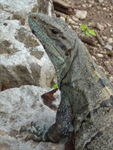Do animals have rights? Are they different from human rights? And, by the way, do all humans have the same rights?
A lot has been said and written about these fundamental questions – not least on this website – but the answers we hear are often very simplistic, whether justifying the exploitation of animals of other species, or promoting practices and normative frameworks aimed at protecting animals from abuse by humans.
Entrenched habits on one side and good feelings on the other often fall short of engaging with the basic question of justice, which cannot be a predetermined concept to be applied only to those who resemble us the most. This very attitude has produced – and still produces – most of the violations of fundamental human rights, and it has similar tragic effects when it comes to the animals we regularly abuse in so many ways, whether legally or illegally.
Questions and answers are like seeds: if they are planted in fertile soil, they can sprout and eventually bear fruit, but if they are left in a drawer, they age and over time become sterile. That is why AnimalWelfareAndTrade is not just an elaborate online CV, but above all an attempt to share information that could help to change animals’ lives for the better throughout the world.
In relation to the theories underlying animal welfare and animal rights, something interesting will be appearing in BBC programmes over the coming months. The British Broadcasting Corporation (BBC) runs a scheme called New Generation Thinkers, which “strives to find the brightest minds of the future – who have the ability to turn ground-breaking academic ideas into radio and television programmes”.
A list of 10 academics has been announced as the New Generation Thinkers 2014, including Alasdair Cochrane, Lecturer in Political Theory at the University of Sheffield.
Alasdair Cochrane’s research is “an analysis of animal rights and how international politics might take animals into consideration when producing new policies”. As explained on the BBC website, he and the other nine New Generation Thinkers “will spend a year working with Radio 3 presenters and producers to develop their ideas into broadcasts. They will make their debut appearance on Radio 3′s arts and ideas programme, Free Thinking, on successive editions beginning Tuesday 10 June and will be invited to make regular contributions to the network throughout the year.”
You can have a taste of Alasdair Cochrane’s ideas by listening to a brief but thought-provoking broadcast now available on the BBC website. It’s just a 5-minute seed, but hopefully it will grow into a solid tree and produce good fruits.


